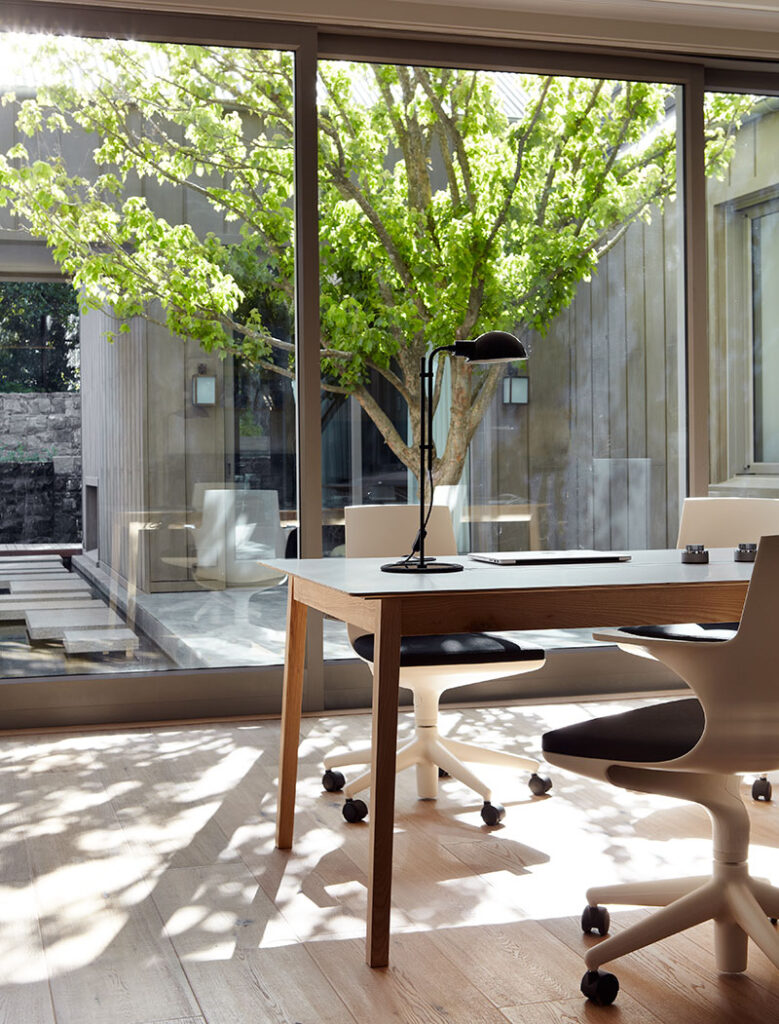The future of home design is rapidly evolving to match changing lifestyles, environmental awareness, and technological advancements. As homes transform, a mix of sustainability, smart technology, and minimalism takes center stage.
This shift not only reflects the need for more functional spaces but also adapts to new ways of living. Let’s explore the key design trends shaping the future of modern homes.
- Embracing Sustainability and Green Living
Sustainability is a driving force in modern home design. Future houses will integrate energy-efficient solutions, including solar panels and eco-friendly building materials. Natural light, green roofs, and water-saving fixtures will become standard. Many homeowners now prioritize sustainable features to reduce energy consumption and live more eco-consciously.
Designs will increasingly focus on connecting indoor and outdoor spaces. Expect open-plan layouts that seamlessly blend living rooms with gardens, promoting better airflow and natural light.

- Smart Homes for a Seamless Lifestyle
Smart home technology continues to grow in popularity. From automated lighting to voice-controlled appliances, the future house will prioritize convenience and efficiency. Innovations like smart thermostats, security systems, and intelligent refrigerators will optimize daily tasks.
By integrating these technologies, homes will become more adaptable, efficient, and secure. Smart design elements will also enhance comfort, making modern homes more responsive to changing needs.
- Multi-Functional Spaces for Versatile Living
As remote work and hybrid lifestyles become the norm, multi-functional spaces gain importance. Home offices, exercise corners, and reading nooks will fit seamlessly into existing layouts. Future homes will focus on flexibility, ensuring rooms serve more than one purpose.
Cape Town interior architects are already embracing this trend by creating adaptive designs. This includes modular furniture and convertible spaces, allowing homeowners to maximize functionality without compromising on style.
- Minimalist Aesthetics with a Touch of Warmth
While minimalism has long been a favorite, the future of home design leans towards cozy minimalism. Clean lines, neutral tones, and uncluttered spaces will still dominate, but with added warmth. Think of natural textures like wood, stone, and soft textiles that bring comfort.
Affordable interior designers in Cape Town emphasize creating tranquil environments that combine simplicity with inviting touches. The goal is to craft homes that are both aesthetically pleasing and emotionally comforting.
- Prioritizing Health and Wellness
Designing for wellness will shape future homes, focusing on spaces that enhance physical and mental health. Expect to see homes with air purification systems, non-toxic materials, and ample natural light.
Wellness features like meditation zones, spa-like bathrooms, and indoor gardens will become common. These spaces will offer a serene retreat, helping occupants relax and recharge after busy days.
- Smart Storage Solutions
Storage remains crucial, especially in smaller homes and apartments. Future designs will feature smart storage options to maximize space without cluttering the environment. Built-in cabinets, under-bed storage, and hidden compartments will offer efficient solutions.
These designs ensure that homes remain organized while maintaining a sleek, minimalist aesthetic. By prioritizing functionality, homeowners can enjoy spaces that are both beautiful and practical.
- Outdoor Living for Every Season
With an increased focus on wellness, outdoor spaces are becoming essential. The future home will emphasize outdoor living areas that can be used throughout the year. This includes covered patios, fire pits, and cozy seating arrangements for all seasons.
Future designs will seamlessly extend indoor spaces outdoors, creating a continuous flow. Homeowners can enjoy nature while staying comfortable, enhancing the overall living experience.

